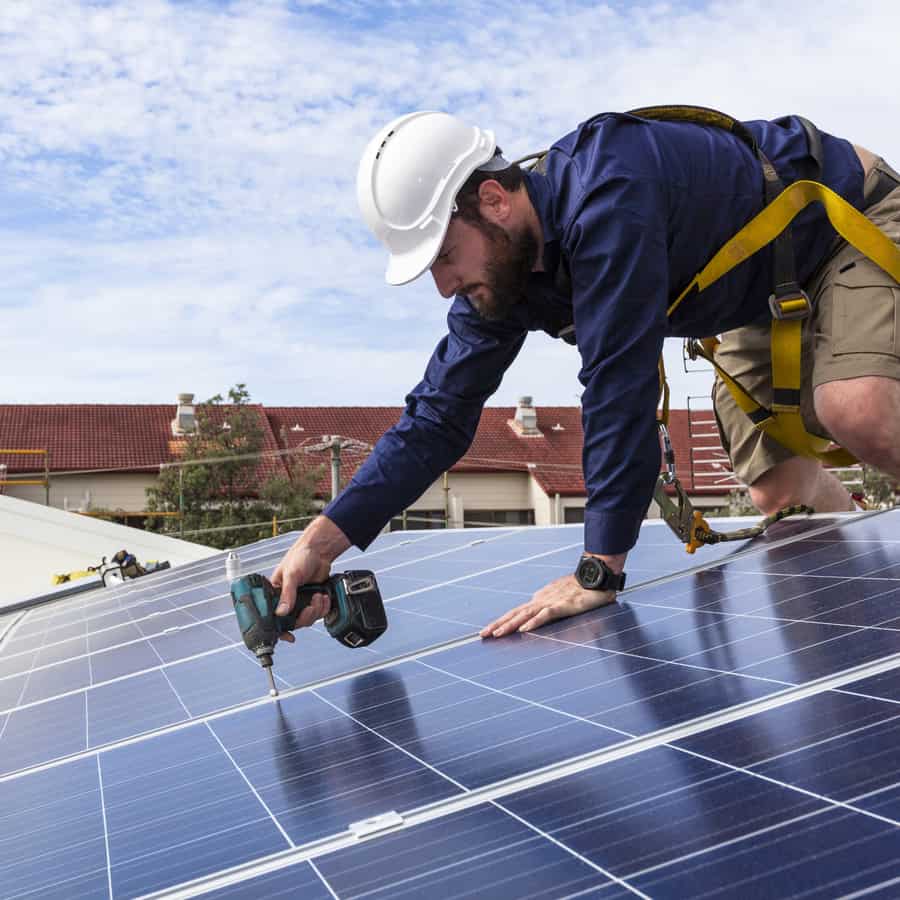Decoding the Power Output of Solar Panels and Understanding Their Energy Generation Capacity
Understanding the Basics: How Does a Solar Panel Generate Energy?
Solar panels generate energy by converting sunlight into electricity. This is achieved through photovoltaic cells, which are made from a semiconductor material (usually silicon) that absorbs sunlight. The energy absorbed from the sunlight knocks electrons loose, allowing them to flow freely. This flow of electrons is captured and directed as direct current (DC) electricity. An inverter then converts this DC into alternating current (AC), which can be used to power homes and businesses.
Factors that Influence the Amount of Energy Generated by Solar Panels
In order for a solar panel to generate the amount of energy that it can, several factors need to be taken into consideration. An example of these factors would be the size and efficiency of the panel, the intensity and angle of the sunlight, the geographical location and the amount of daylight exposure the panel receives. For example, a larger and more efficient solar panel installed in a region with ample sunlight will naturally generate more electricity than a smaller, less efficient panel in a less sunny location.
Typical Energy Output of Residential and Commercial Solar Panels
It is typical for residential solar panels to have a power output of about 250-350 watts under ideal conditions. One panel can generate 250-350 watt-hours of electricity in a full hour of peak sunlight. Commercial solar panels, which are typically larger, can generate more energy – often 370 watts or more.
It’s important to note that these are maximum outputs under perfect conditions. Real-world conditions such as cloud cover, shading, and the angle of the sun at different times of the year can reduce the actual energy output.

Calculating the Number of Solar Panels Needed to Power Your Home
Your average energy consumption is the first step in calculating how many solar panels you need for your home. You can usually find this information on your utility bill. As a next step, consider how many peak sunlight hours your location receives on average. By dividing your daily energy consumption by the number of peak sunlight hours, you can estimate the size of the solar panel system you’ll need.
For instance, if your household uses 30 kilowatt-hours (kWh) per day and you get 5 hours of peak sunlight, you would need a 6 kW solar panel system (30 kWh divided by 5 hours equals 6 kW).
Making the Most of Your Solar Panels: Tips for Maximizing Energy Generation
To maximize the energy generation of your solar panels, it’s crucial to install them in a location that gets the most sunlight throughout the day. In the Northern Hemisphere, this usually means facing them south, and in the Southern Hemisphere, it means facing them north. Shade from trees or other structures should also be avoided. Regular maintenance, like cleaning the panels to remove dust and debris, can also help ensure they work at their best.
The amount of energy a solar panel generates can vary widely based on several factors. However, with the right setup and conditions, solar panels can produce enough electricity to meet, and often exceed, the energy needs of most homes and businesses.
Taking Advantage of Government Incentives and Tax Breaks for Solar Energy Utilization
In order to promote the use of solar energy, many governments provide incentives and tax breaks. These might include grants, rebates, or tax credits, which can significantly reduce the cost of installing a solar panel system. Coupled with the savings on energy bills, these incentives make solar energy an economically viable option for many homeowners and businesses.
In conclusion, the benefits of having solar panels go far beyond mere cost savings. They provide energy independence, contribute to a healthier environment, increase property value, support job creation, and are often accompanied by attractive government incentives. Therefore, investing in solar panels is a wise and forward-thinking choice for both individuals and businesses.



